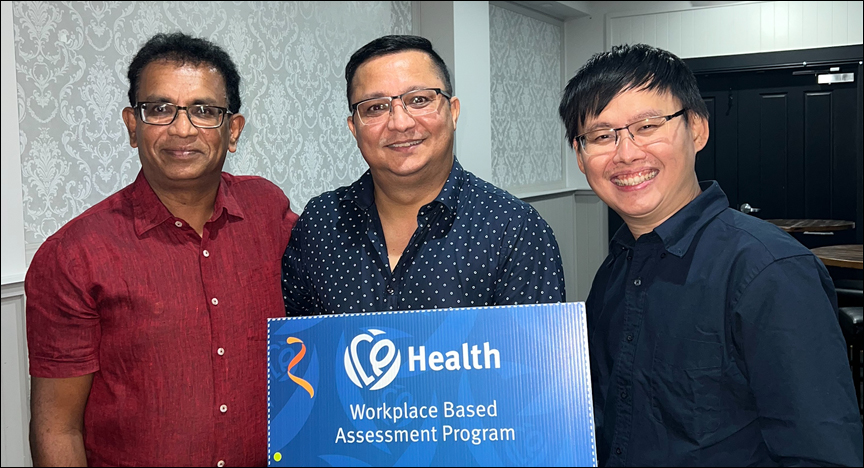
Central Queensland Hospital and Health Service is celebrating the outstanding success of its Workplace Based Assessment program.
The first cohort of six doctors to complete the program have been congratulated, with another seven doctors due to finish in July. Cohort 3 started in January and a further 12 doctors will commence in July.
The Workplace-Based Assessment (WBA) program plays a crucial role in helping medical graduates from overseas transition to the Australian workforce, by providing an alternative assessment process to qualify for general registration with the Medical Board of Australia.
Dr Binod Gautam is one of the first cohort to have successfully passed the comprehensive assessment and is excited to embark on the next steps in his medical career.
“My goal is to become a general practitioner so I can assist the community my family and I have come to love,” Binod said.
Binod is currently working as a Resident Medical Officer in the Obstetrics and Gynaecology department and brings a wealth of medical experience from his home county of Nepal, where he worked in emergency, ENT, general practice and public health.
“We first came to Australia in 2010, then moved to Rockhampton in 2020 - we absolutely love it here. It is a very friendly town and the staff at Rockhampton Hospital are like a second family.
“My wife is one of the doctors working in Mental Health and my two boys are happily settled in school and loving life.”
Binod said being able to undertake the WBA program in Central Queensland was a huge incentive for overseas medical graduates.
“CQ Health and the WBA committee have been so supportive and the commitment to make this pathway a success is outstanding.”
All international medical graduates are required to do a comprehensive, mandatory assessment process before they receive registration to practise in Australia. This includes theoretical and clinical exams, using actors in scenarios.
The WBA program replaces the clinical exam with a 12-month placement, during which doctors work under close supervision on real patients in real scenarios, and are assessed on their clinical skills, professional qualities and ability to work safely.
Executive Director Medical Services Professor Pooshan Navathe commended all those involved in establishing the WBA pathway in Central Queensland.
“While the program is a longer process, requiring more structure, trained assessors, increased supervision, and resourcing than a mock clinical exam, the outcomes are impressive,” Prof Navathe said.
“Our program is designed to be flexible and meet the different needs of doctors from different background experiences. This program is great for the doctors, it supports our patients, and it helps grow our medical workforce which is increasingly challenging in regional areas.”